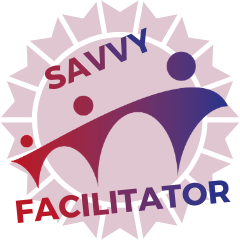Description
| Course content, structure and pedagogical
approach |
| This course introduces students to organizational social
entrepreneurship, a process by which opportunities to create public
goods are identified and created. Being an “essentially contested
concept” (Choi and Majumdar, 2014) social entrepreneurship is best
understood as a cluster concept covering different applications
ranging from the launching of social enterprise start-ups to the
transformation of industry sectors towards sustainability. In the
course we will analyze the antecedents of social
entrepreneurship. An essential part of the course will be an
introduction to core concepts of social entrepreneurship such as
the theory of change, social impact measurement tools, and hybrid
organizational form selection. To suplement academic learning with
handson project experience students will work in teams on a
specific social entrepreneurship problem. |
| Description of the teaching methods |
| Lectures, case discussions, and group work. In
addition to the daily class teaching sessions, supplementary
lectures will also be available as online videos for asynchronous
viewing. Since this is an intensive 3-week course it is essential
that you plan enough time every week both for class preparation (10
hours per week), attending lectures (12-14 hours per week) and
group work after class (10 hours per week). An intensive 3-week
ISUP course is thus not made for students who are working part or
full-time while also attending the summer university. |
| Feedback during the teaching period |
| The course will be held in one of the CBS Studios
and in cooperation with the Copenhagen School of Entrepreneurship
(CSE). Both these learning spaces are designed for active and
student-centered learning. During your teamwork you give feedback
to your peers and receive mentoring from your peers as well as from
the faculty. |
European Dimension
The course welcomes students from all over Europe.
Tentative Program & Schedule
Course schedule will be posted at
calendar.cbs.dk
Preliminary Assignment: The Nordic
Nine pre-course is foundational for the summer university
and identical for all bachelor courses. Students will receive an
invitation with all details by the end of May. The assignment has
two parts. 1.) online lectures and tutorials that student can
access at their own time and 2.) one synchronous workshop which
will be offered both online and in-person at several dates and
times before the official start of the summer university courses.
Sign-up is first come first serve. All students are expected to
complete this assignment before classes begin.
Student workload
| Class preparation (e.g. readings) |
66 hours |
| Optional online lectures available via Coursera |
16 hours |
| Site visits to social enterprises |
8 hours |
| Teamwork |
30 hours |
| Lectures |
38 hours |
| Examination (take-home exam) |
48 hours |
Expected Outcome
Learning objectives
You are expected to apply the theories introduced
in this course to the analysis of your social entrepreneurship
problem. Specifically you should be able to:
- Classify definitions for social entrepreneurship at various
levels of analysis and discuss how these differ in terms of their
impact change generation.
- Enumerate the antecedents of social entrepreneurial intentions
and how and why they affect intentions formation.
- Apply the notion of antagonistic assets and discuss the process
through which they can be turned into social entrepreneurship
opportunities with an earned income potential.
- Describe the different organizational forms available for
social enterprises and argue for which form is most appropriate for
your social enterprise idea (and why).
- Identify different tools to measure the social impact of social
entrepreneurship and evaluate which best suits to your group’s
idea.
University of Duisburg-Essen (UDE)
Address
Forsthausweg 2, 47057 Duisburg
Website URL
https://www.uni-due.de/de/universitaet/
Contact persons
Please enter the name and email address of the contact person
Co-Organiser (local host)
Name of Co-Organisation
Copenhagen Business School
Short Description of the Organisation
Copenhagen Business School (Danish: Handelshøjskolen i København) often abbreviated and referred to as CBS (also in Danish), is a public university situated in Copenhagen, Denmark and is considered one of the most prestigious business schools in Western Europe and the world.
Source: Wikipedia
Organisation Website
https://www.cbs.dk/en







